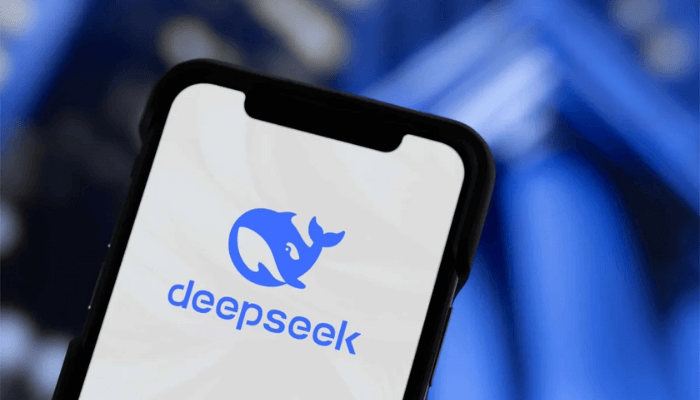A Looming Ban: DeepSeek’s Future in the US Under Threat
Chinese AI company DeepSeek may soon be banned in the United States following a newly proposed bill that could impose heavy penalties on individuals and businesses using Chinese-developed artificial intelligence technology. The legislation, introduced by Republican Senator Josh Hawley, has sparked heated debates over national security, technological competition, and digital sovereignty.
The Proposed Law: What It Means
Senator Hawley’s bill aims to “prohibit United States persons from advancing artificial intelligence capabilities within the People’s Republic of China, and for other persons.” While DeepSeek is not explicitly mentioned, the proposed restrictions align closely with the AI’s recent rise in global popularity, which has drawn significant scrutiny from US lawmakers and security experts.
If passed, the law would effectively ban the importation and use of Chinese-developed AI technologies in the US. Violators could face severe consequences, including:
- Up to 20 years in prison for individuals found guilty of breaching the restrictions.
- Fines up to $1 million for individuals.
- Fines up to $100 million for businesses that violate the ban.
Why DeepSeek Became a Target
DeepSeek’s meteoric rise has been a game-changer in the AI industry. Within weeks of its launch, it surpassed leading AI platforms in popularity, disrupting the AI market and impacting major US tech stocks, including Nvidia, Microsoft, and Meta. The US government is now raising concerns about:
- Security and Privacy Risks: Experts warn that DeepSeek’s data is stored on servers in China, raising fears that sensitive information could be accessed by the Chinese government.
- Censorship and Ethical Concerns: Reports suggest that DeepSeek avoids answering politically sensitive questions related to the Chinese Communist Party (CCP), raising questions about bias and information control.
- Economic and Competitive Threats: DeepSeek’s success has put pressure on US AI companies, triggering concerns over America’s dominance in AI innovation.
US Government’s Response
SEE ALSO: DeepSeek: 5 Reasons The AI Model Is Beating ChatGPT
The White House is reportedly evaluating DeepSeek’s impact on national security, following comments from former President Donald Trump, who described the AI’s sudden rise as a “wake-up call” for the American tech industry. Several US government agencies have already taken independent action against the platform:
- The US Navy has banned its personnel from using DeepSeek for both work-related tasks and personal use.
- NASA has prohibited the use of DeepSeek on government-issued devices and networks.
- Texas became the first state to officially ban DeepSeek from all government devices, with Governor Greg Abbott stating, “Texas will not allow the Chinese Communist Party to infiltrate our state’s critical infrastructure through data-harvesting AI and social media apps.”
How Serious Is the Threat?

Cybersecurity experts believe that DeepSeek could pose an even greater risk than other Chinese-owned applications like TikTok. Bill Conner, a former security advisor to the US government, highlighted key risks:
- Data Storage in China: Unlike some AI services that store data in multiple locations worldwide, DeepSeek’s privacy policy explicitly states that all data is stored on Chinese servers.
- Potential for Government Access: Given China’s strict cybersecurity laws, which require companies to provide access to government agencies upon request, concerns over data privacy and compliance are growing.
- Intellectual Property Risks: US lawmakers are also worried about the possibility of Chinese AI companies gaining an unfair competitive advantage by leveraging US-developed technologies.
The Global Impact of a Ban
If the US officially bans DeepSeek, it could set a precedent for other Western nations. The European Union has already started discussions on AI regulations that could impact Chinese companies, and Australia has hinted at potential restrictions on foreign AI applications.
For US-based AI firms, a ban on DeepSeek could provide temporary relief from competition. However, experts warn that cutting off access to international AI advancements could slow down overall innovation in the industry.
What’s Next for DeepSeek?
As the bill moves through the legislative process, DeepSeek is likely to face increased scrutiny from regulators. The Chinese government has yet to respond officially to the proposed ban, but tensions between the US and China in the technology sector continue to rise.
For now, DeepSeek remains accessible to US users, but with mounting pressure from lawmakers, its future in the country remains uncertain. Whether the AI will adapt to regulatory challenges or face an outright ban will largely depend on how the US government balances national security concerns with the need for technological progress.
Final Thoughts
The proposed ban on DeepSeek is more than just a legal battle—it’s a reflection of the growing rift between the US and China in the race for AI supremacy. As lawmakers push for stricter regulations, the debate over security, competition, and digital freedom is only just beginning. The coming months will determine whether DeepSeek can continue to thrive in the global AI space or if it will become the latest casualty in the ongoing US-China tech war.



